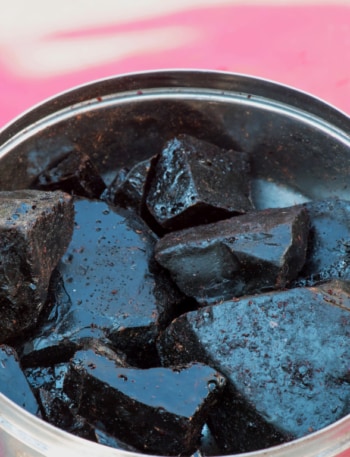Focusing on long-term health and behaviors to lose weight that you can maintain can help improve your health and increase your chances of losing weight in the long run.
Although heredity has a role in the development of overweight and obesity, genetics cannot explain the rise in obesity observed in the United States during the last two decades. Instead, the environmental and behavioral factors appear to make people have low physical activity and consume too much relative to their energy expenditure.1
Therefore, weight-management strategies aim to address these factors. An effective and long-lasting weight control strategy focuses on long-term health and habits that can be maintained over time.
This article discusses the most effective and sustainable tips to lose weight, all of which are scientifically supported.
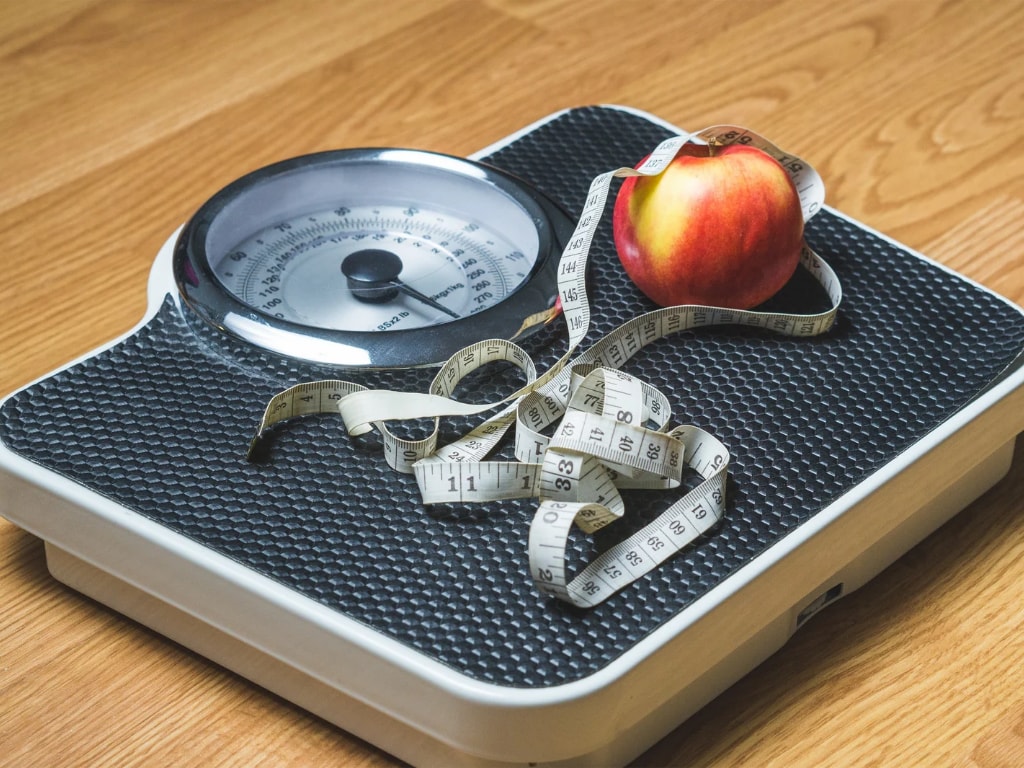
Weight Loss Strategies
1. Eat mindfully
Mindful eating is a discipline in which people focus on how and where they eat meals. This method allows people to enjoy their food while also potentially promoting weight loss.2
Strategies for mindful eating include:
- Enjoy the meal and pay attention to the food as you sit down to eat, preferably at a table.
- Avoid distractions during eating and never switch on a phone, laptop, or television.
- Eat slowly: Give the meal time to break down and be enjoyed. By giving the brain adequate time to register feelings of fullness. This strategy aids in weight loss by reducing the likelihood of overeating.
- Learn to recognize the difference between hunger and emotional cravings for food.
- Make mindful dietary decisions: Select meals that will fill you up for hours as opposed to minutes, and that are high in healthy nutrients.
2. Cut back on sugar and processed carbohydrates
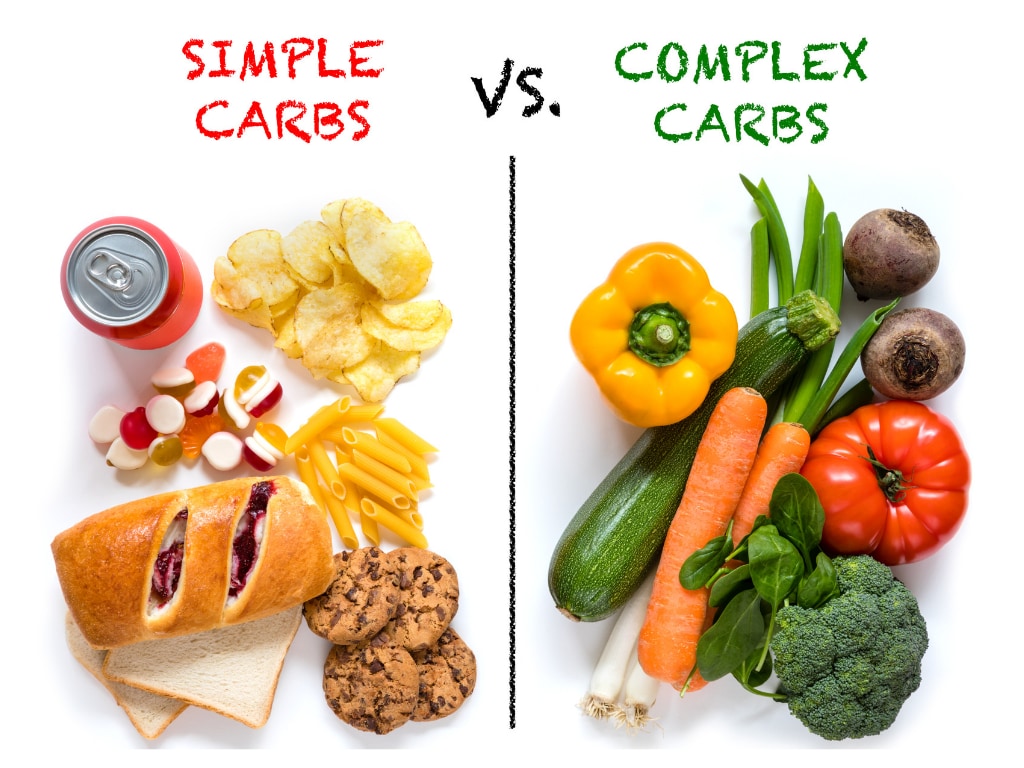
Refined carbohydrates, mostly sugars and processed grains, are empty calories that cause fast rises in blood sugar and insulin levels.
Sugars and refined grains devoid of bran, fiber, and nutrients. White bread, pizza dough, pasta, pastries, white flour, white rice, sweet sweets, and many morning cereals, are examples of bad or simple carbs. They digest rapidly and have a high glycemic index, which produces dangerous blood sugar spikes.
They can also induce mood and energy changes, as well as fat buildup, particularly around the waist. Excess glucose enters the bloodstream, stimulating the hormone insulin, which increases fat storage in adipose tissue. This promotes weight gain.
Furthermore, processed foods are designed to encourage you to consume as many calories as possible. They are considerably more prone to trigger addictive eating than unprocessed food.3
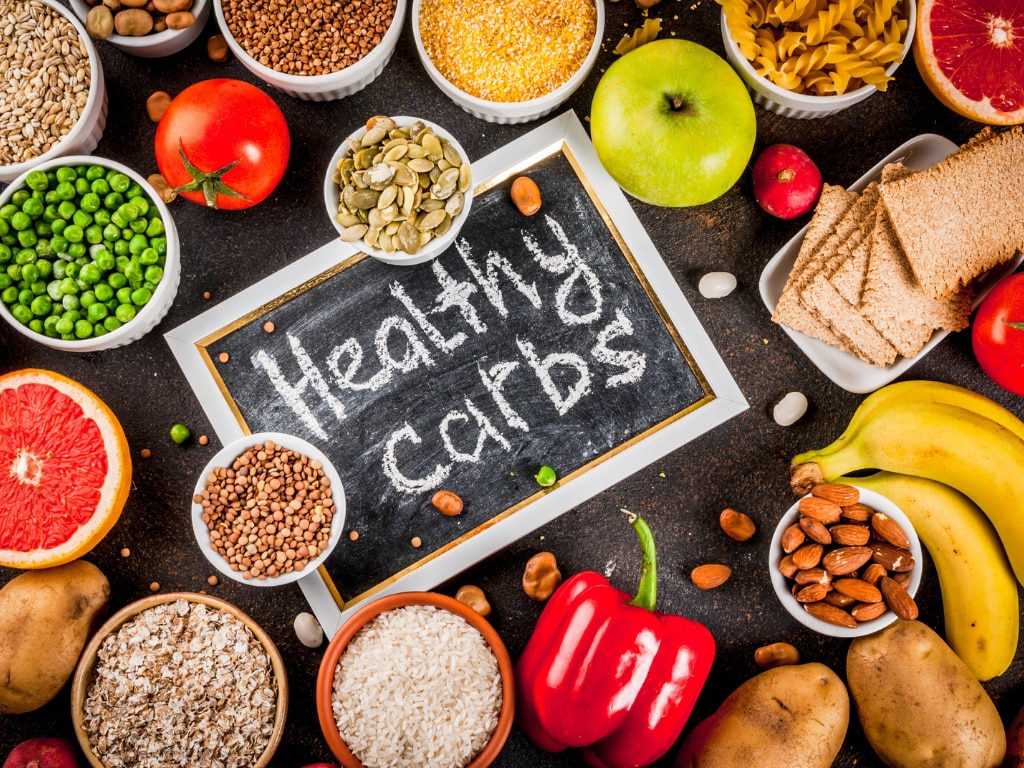
You should replace excessively processed and sugary diets with more nutritious alternatives:
- Use whole-grain rice, bread, and pasta instead of white ones.
- Replace high-sugar snacks with fruit, nuts, and seeds.
- Instead of high-sugar drinks, opt for herbal teas and fruit-infused water. Smoothies made with water or milk can replace fruit juice.
3. Follow a low-carb diet
Research indicates that low-carb diets can help people lose weight more quickly than other diets by decreasing their hunger, causing them to consume less calories.3
There are other advantages to low-carb diets besides weight loss. They have the potential to reduce blood sugar, which is crucial for diabetics. A low-carb diet has also been linked to lowered blood pressure.
Diets low in carbohydrates, like the ketogenic diet, can lower blood levels of insulin, a hormone that helps the body absorb glucose from carbohydrates.
Insulin has many roles, including fat storage. Many doctors think that low-carb diets are effective because they lower your levels of this hormone. Insulin also instructs the kidneys to hold onto salt. This explains why high-carb diets may result in excessive water retention.
4. Consume more protein
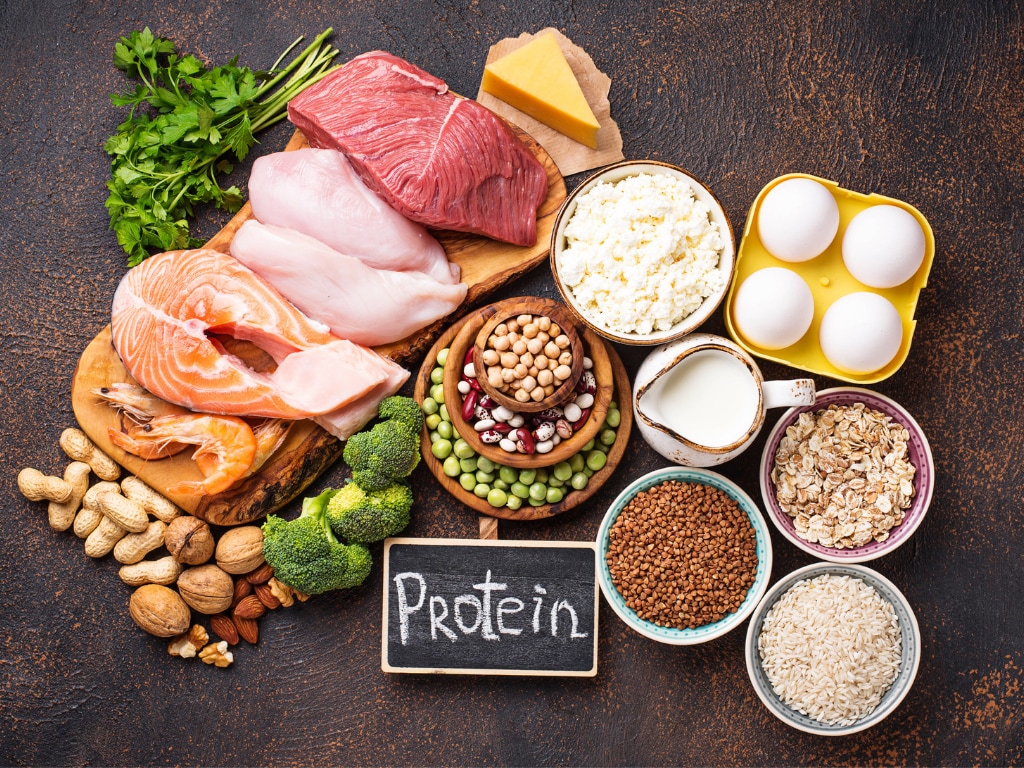
Protein helps you feel full by controlling hunger hormones.
Research shows that significant weight loss is achieved when dietary protein is increased from 15% to 30% of calories while maintaining a steady intake of carbohydrates.4
Sardines, quinoa porridge, eggs, oats, nut and seed butter, and chia seed pudding are all excellent options for a high-protein breakfast.
5. Eat more veggies and fruits
Consuming fruits and vegetables that aren’t starchy, such as apples, pears, and green leafy vegetables, may help you lose weight.5 Their low glycemic contents prevent blood sugar spikes, which may boost appetite.
Numerous studies have found that persons who consume more fruits and vegetables tend to weigh less.6
Some vegetables, such as potatoes, sweet potatoes, and corn have greater calorie and carbohydrate content. A few fruits, such as watermelons, dried fruits, overripe mangoes, pineapples, and canned fruits, have high sugar and calorie contents and should be eaten in moderation. When you add these vegetables to your meal, pay attention to the portion proportions that you use.
6. Choose healthy fats
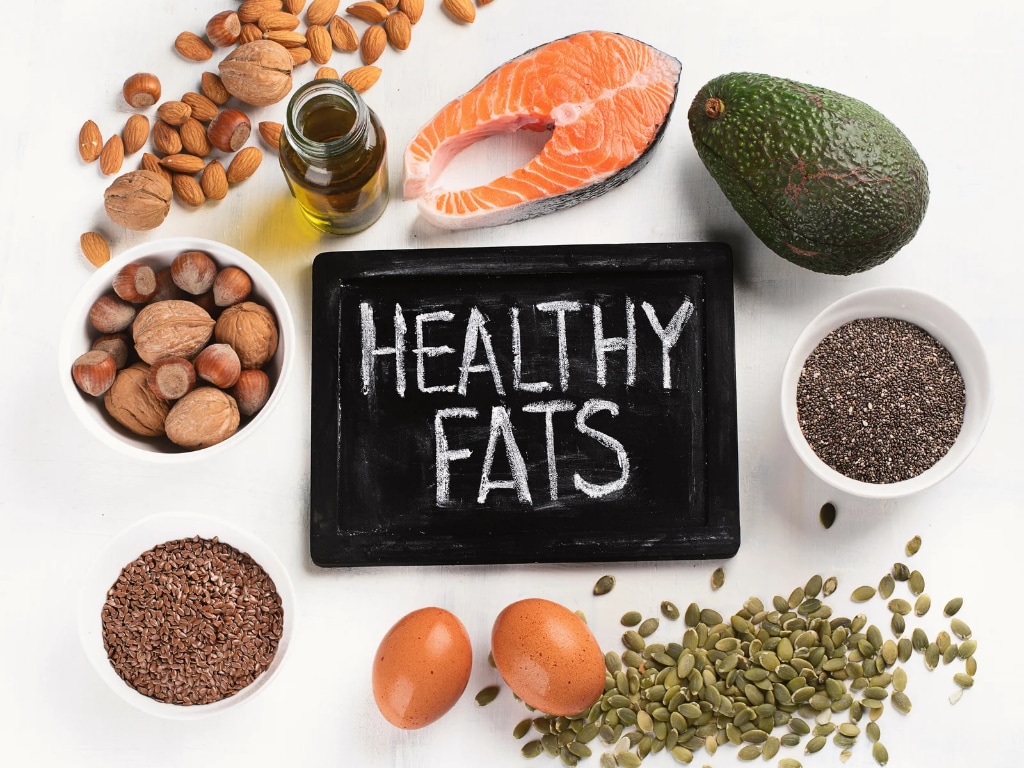
Switching to healthier fats involves eating more plant oils like olive, avocado, canola, or soy instead of animal fats like lard, butter, and cream, replacing sour cream with fat-free plain yogurt, replacing whole milk with fat-free or low-fat milk, and consuming seeds, fatty fish, and nuts on a regular basis.7
7. Consume more fiber
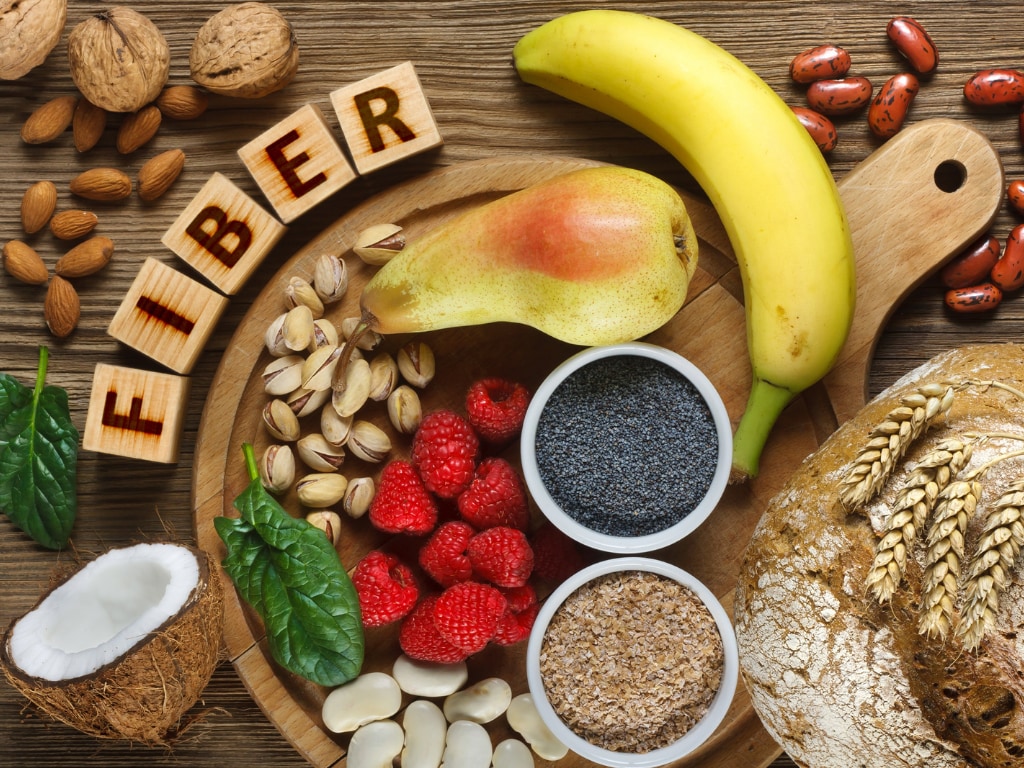
Dietary fiber refers to plant-based carbohydrates that, in contrast to sugar and starch, cannot be broken down in the small intestine. Consuming a diet rich in fiber can help you feel fuller for extended periods and support weight loss since it passes slowly through the digestive system. Additionally, it may encourage regularity, normalize blood sugar levels, and protect against some chronic diseases.8
Foods high in fiber include fruits, vegetables, whole grains, breads, and legumes. Legumes and many vegetables are likewise high in fiber.
8. Stay hydrated
Drinking plenty of water will help you lose weight by limiting your food intake, particularly if you drink it before a meal.9 It may also work by increasing fat burning, which can aid in long-term weight loss.10
Drinking water has other weight loss benefits, such as keeping you hydrated when exercising and removing waste from your body. In general, drinking water helps your body function more efficiently.
9. Exercise
According to the available research, calorie restriction seems to have a more significant and long-lasting impact on weight loss than only exercise training.12 However, combining exercise with a balanced diet is a more effective approach to losing weight than cutting calories alone.
It’s crucial that you speak with your doctor and have an examination before beginning an exercise program. This is particularly important for those who are new to intense and severe physical activities. Any health issues or conditions that may increase your risk of injury while exercising can be revealed with an early examination.
Additionally, it may help you get the most out of your workout by making it simpler for you and, if you decide to work with a personal trainer, recognize your limits and design an exercise program according to your requirements.
10. Monitor your nutrition and exercise
To lose weight, you should keep track of what you eat and drink every day. One way to accomplish this is to record these items in a notebook or an online food tracker.
Tracking nutrition and activity can help with weight loss because it promotes behavioral changes and enhances motivation.11
11. Try intermittent fasting
Intermittent fasting (IF) is a dietary strategy that includes repeated short-term fasts and eating meals in shorter bursts throughout the day.
Many studies have shown that IF is effective for persons looking to lose weight quickly, often within a month to 3 months.13
NOTE: Consult with your doctor before starting any diet program.
12. Keep your gut flora in balance
The influence of gut microbes on weight control is one newly emerging field of study.
The kinds and quantities of bacteria in each person’s stomach vary. Certain kinds could raise the body’s energy absorption from food, which could result in weight growth and fat accumulation.
Obese people have fewer varied gut microbes compared to lean people. Furthermore, obese people who have less diverse gut bacteria acquire more weight than individuals with more diverse gut bacteria.14
A recent study on probiotics and weight reduction in people with overweight and obesity reveals that probiotics can help lose weight and reduce body fat percentage.15
13. Have a decent night’s sleep
A good night’s sleep is essential for excellent health and may also help you maintain a healthy weight.
Many studies have shown that having less than the recommended amount of sleep is an independent and significant risk factor for obesity in newborns, children, and adults. People who sleep less than 7 or 8 hours a night are more likely to gain weight and become obese.16
14. Control your amount of stress
Ghrelin is a stress biomarker that increases in the short term after an acute stress intervention. Research has shown that overweight and obese individuals exhibit a longer reaction than normal-weight individuals, suggesting the relationship between obesity and stress.17
IMPORTANT: Before starting a weight reduction program, consult with your doctor to alter the plan to account for your medical history or known health conditions.
Frequently Asked Questions
Should I count my calorie intake?
Counting calories isn’t always necessary if you eat a balanced meal high in vegetables, fat, and protein. You can monitor your calorie intake if you’re not losing weight in order to determine whether that’s a contributing cause. Try estimating your calorie requirements with a free online calculator.
Consuming insufficient calories can be harmful and less conducive to weight loss. On the advice of your physician, try cutting your calorie intake by a reasonable and healthy amount.
Is 800 calories per day safe?
Very low-calorie diets (VLCDs), which provide 800 calories or fewer, can result in quick weight loss, although they may not be healthy for everyone and are not usually suggested.
How rapidly can I lose weight?
A diet plan may cause you to lose weight more quickly during the first week and then more steadily but slowly thereafter. You usually lose a combination of water weight and body fat during the first week. Over time, it’s best to strive for a weekly weight loss of 1 to 2 pounds (0.5 to 1 kilogram).
How quickly can I drop 20 pounds (10 kg)?
In general, healthy weight-loss guidelines recommend losing one or two pounds every week, which might take anywhere from 10 to 20 weeks to drop 20 pounds. That may seem like a long time, but it is preferable to take things slowly.
When will I start to lose weight?
You may start losing weight in 7 days by consuming fewer processed foods and extra sugars. Exercising regularly and increasing your intake of fiber-rich foods and lots of water may also be beneficial. Nevertheless, a variety of variables affect weight loss, so it’s recommended to aim for a slower, more sustainable weight reduction of 0.5–2 pounds each week.
What carbohydrates are best for weight loss?
Whole grain: Whole-grain breads and pastas, farro, quinoa, bulgur wheat, and brown or wild rice.
Green peas, corn, and winter squash such as butternut or spaghetti squash.
Final Thoughts
Even though you may want to lose weight quickly, it’s important to consider the long term. While you may lose water weight quickly, fat takes longer to lose, and developing sustainable weight loss may take longer than you’d like.
Long-term weight loss can be supported by eating a balanced diet and engaging in regular exercise. Meals should consist of complex carbohydrates, protein, fat, and veggies to balance your plate.
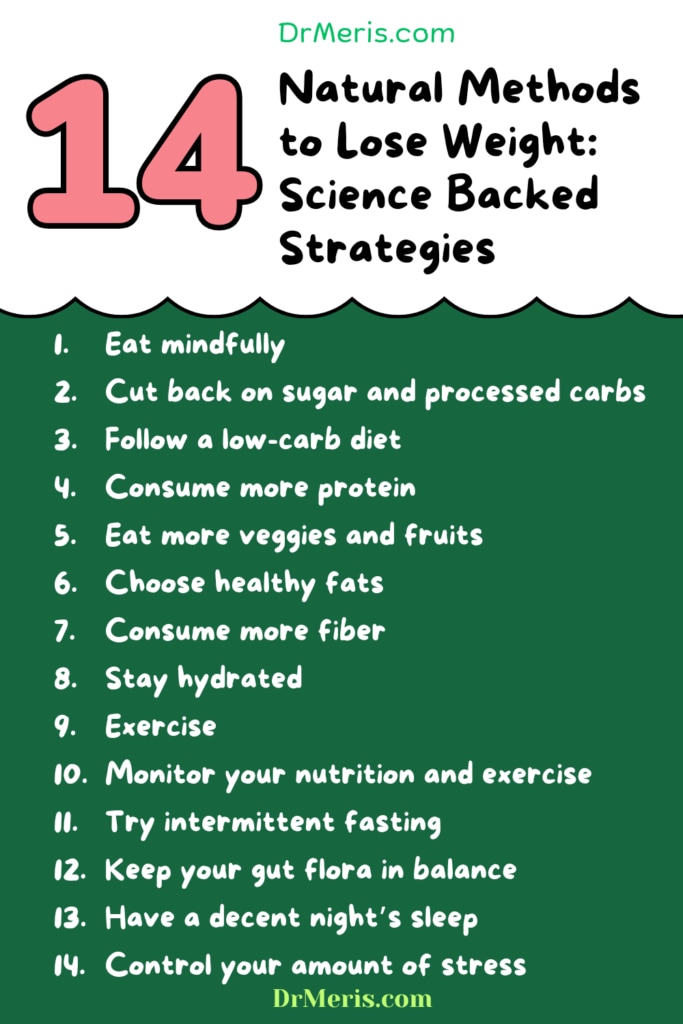
References
1. Institute of Medicine (US) Subcommittee on Military Weight Management. Weight Management: State of the Science and Opportunities for Military Programs. Washington (DC): National Academies Press (US); 2004. 4, Weight-Loss and Maintenance Strategies. Available from: https://www.ncbi.nlm.nih.gov/books/NBK221839/
2. Carrière, K., Khoury, B., Günak, M. M., & Knäuper, B. (2018). Mindfulness-based interventions for weight loss: a systematic review and meta-analysis. Obesity reviews : an official journal of the International Association for the Study of Obesity, 19(2), 164–177. https://doi.org/10.1111/obr.12623
3. Schulte, E. M., Avena, N. M., & Gearhardt, A. N. (2015). Which foods may be addictive? The roles of processing, fat content, and glycemic load. PloS one, 10(2), e0117959. https://doi.org/10.1371/journal.pone.0117959
4. Weigle, D. S., Breen, P. A., Matthys, C. C., Callahan, H. S., Meeuws, K. E., Burden, V. R., & Purnell, J. Q. (2005). A high-protein diet induces sustained reductions in appetite, ad libitum caloric intake, and body weight despite compensatory changes in diurnal plasma leptin and ghrelin concentrations. The American journal of clinical nutrition, 82(1), 41–48. https://doi.org/10.1093/ajcn.82.1.41
5. Bertoia, M. L., Mukamal, K. J., Cahill, L. E., Hou, T., Ludwig, D. S., Mozaffarian, D., Willett, W. C., Hu, F. B., & Rimm, E. B. (2015). Changes in Intake of Fruits and Vegetables and Weight Change in United States Men and Women Followed for Up to 24 Years: Analysis from Three Prospective Cohort Studies. PLoS medicine, 12(9), e1001878. https://doi.org/10.1371/journal.pmed.1001878
6. Ledoux, T. A., Hingle, M. D., & Baranowski, T. (2011). Relationship of fruit and vegetable intake with adiposity: a systematic review. Obesity reviews : an official journal of the International Association for the Study of Obesity, 12(5), e143–e150. https://doi.org/10.1111/j.1467-789X.2010.00786.x
7. Nettleton JA, Brouwer IA, Mensink RP, Diekman C, Hornstra G. Fats in Foods: Current Evidence for Dietary Advice. Ann Nutr Metab. 2018;72(3):248-254. https://doi.org/10.1159/000488006. Epub 2018 Mar 27. PMID: 29587252; PMCID: PMC6067651.
8. Akbar A, Shreenath AP. High Fiber Diet. [Updated 2023 May 1]. In: StatPearls [Internet]. Treasure Island (FL): StatPearls Publishing; 2024 Jan-. Available from: https://www.ncbi.nlm.nih.gov/books/NBK559033/
9. Hofmeister M. Water for weight loss. Can Fam Physician. 2022 Nov;68(11):796. https://doi.org/10.46747/cfp.6811796. PMID: 36376050; PMCID: PMC9833168.
10. Çıtar Dazıroğlu, M. E., & Acar Tek, N. (2023). Water Consumption: Effect on Energy Expenditure and Body Weight Management. Current obesity reports, 12(2), 99–107. https://doi.org/10.1007/s13679-023-00501-8
11. Institute of Medicine (US) Subcommittee on Military Weight Management. Weight Management: State of the Science and Opportunities for Military Programs. Washington (DC): National Academies Press (US); 2004. 4, Weight-Loss and Maintenance Strategies. Available from: https://www.ncbi.nlm.nih.gov/books/NBK221839/
12. Swift, D. L., Johannsen, N. M., Lavie, C. J., Earnest, C. P., & Church, T. S. (2014). The role of exercise and physical activity in weight loss and maintenance. Progress in cardiovascular diseases, 56(4), 441–447. https://doi.org/10.1016/j.pcad.2013.09.012
13. Shalabi, H., Hassan, A. S., 4th, Al-Zahrani, F. A., Alarbeidi, A. H., Mesawa, M., Rizk, H., & Aljubayri, A. A. (2023). Intermittent Fasting: Benefits, Side Effects, Quality of Life, and Knowledge of the Saudi Population. Cureus, 15(2), e34722. https://doi.org/10.7759/cureus.34722
14. Le Chatelier, E., Nielsen, T., Qin, J., Prifti, E., Hildebrand, F., Falony, G., Almeida, M., Arumugam, M., Batto, J. M., Kennedy, S., Leonard, P., Li, J., Burgdorf, K., Grarup, N., Jørgensen, T., Brandslund, I., Nielsen, H. B., Juncker, A. S., Bertalan, M., Levenez, F., … Pedersen, O. (2013). Richness of human gut microbiome correlates with metabolic markers. Nature, 500(7464), 541–546. https://doi.org/10.1038/nature12506
15. Borgeraas, H., Johnson, L. K., Skattebu, J., Hertel, J. K., & Hjelmesaeth, J. (2018). Effects of probiotics on body weight, body mass index, fat mass and fat percentage in subjects with overweight or obesity: a systematic review and meta-analysis of randomized controlled trials. Obesity reviews : an official journal of the International Association for the Study of Obesity, 19(2), 219–232. https://doi.org/10.1111/obr.12626
17. Bouillon-Minois, J. B., Trousselard, M., Thivel, D., Gordon, B. A., Schmidt, J., Moustafa, F., Oris, C., & Dutheil, F. (2021). Ghrelin as a Biomarker of Stress: A Systematic Review and Meta-Analysis. Nutrients, 13(3), 784. https://doi.org/10.3390/nu13030784
Sign Up for Our Email List
Get our latest articles, healthy recipes, tips, and exclusive deals delivered straight to your inbox with our newsletter.
We won't send you spam. Unsubscribe at any time.




